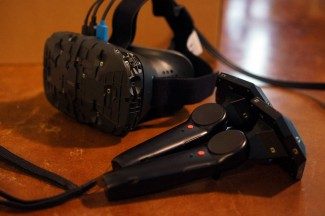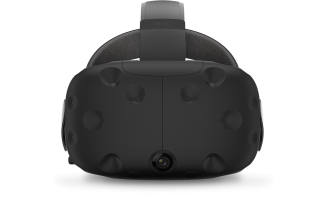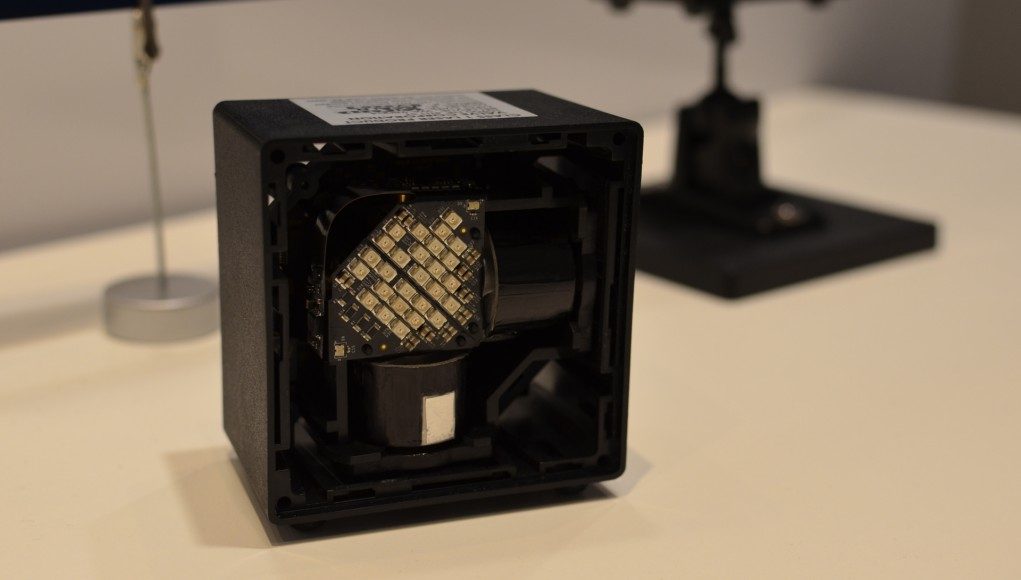As one of the necessary steps for getting a product ready for consumer sale in the U.S., the HTC Vive and its laser-based ‘Lighthouse’ base stations have received approval from the FCC.
The U.S. Federal Communications Commission is tasked with certifying products with electromagnetic emissions to be safe and compatible with regulations. Products utilizing radio, WiFi, infrared, etc. need certification before they can be distributed for sale.

The HTC Vive headset and Lighthouse base stations have now received FCC approval.
It was suggested that FCC certification would pose a challenge to the laser-based Lighthouse base stations given the nature of the system, which points laser sweeps at the user and the Vive headset to facilitate a large ‘room-scale’ tracking space. While the user’s eyes are of course blocked from the lasers while using the headset, it’s easy for non-headset wearing uses to be exposed due to the range of the base stations.

The Lighthouse tracking system was of course designed with this in mind and the FCC has confirmed that the base stations meet regulations for safe use imposed on laser-based products. Documentation submitted to the FCC shows that the units fall into the category of ‘Class 1 Laser Product’, and further “Complies with 21 CFR 1040.10 and 1040.11 except for deviations pursuant to Laser Notice No. 50, dated June 24, 2007.”
The Vive controllers and ‘Link Box‘ have also received FCC certification. The documentation doesn’t make it clear if these approvals are for the forthcoming forthcoming 2nd Vive development kit said to be launching next week at CES or if it’s for the consumer unit coming in April, 2016.







